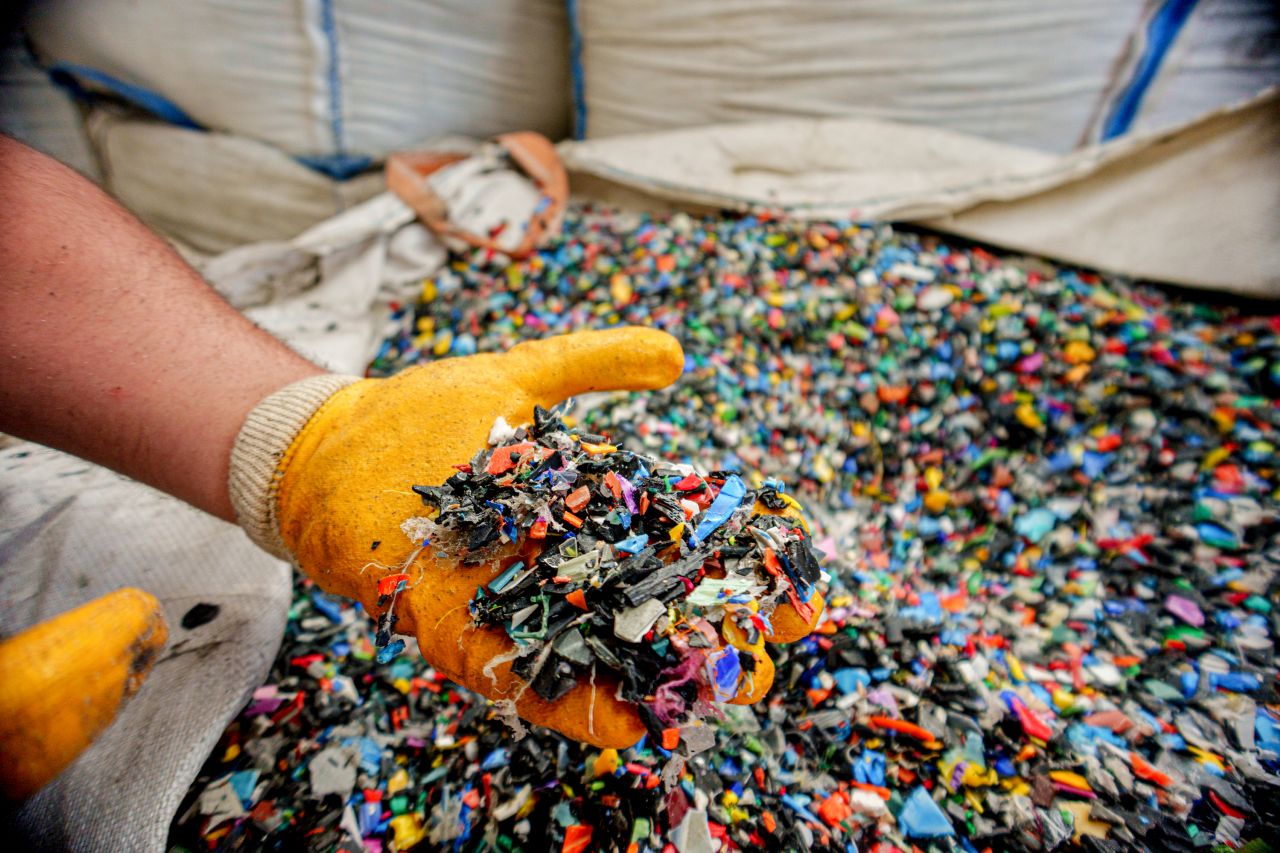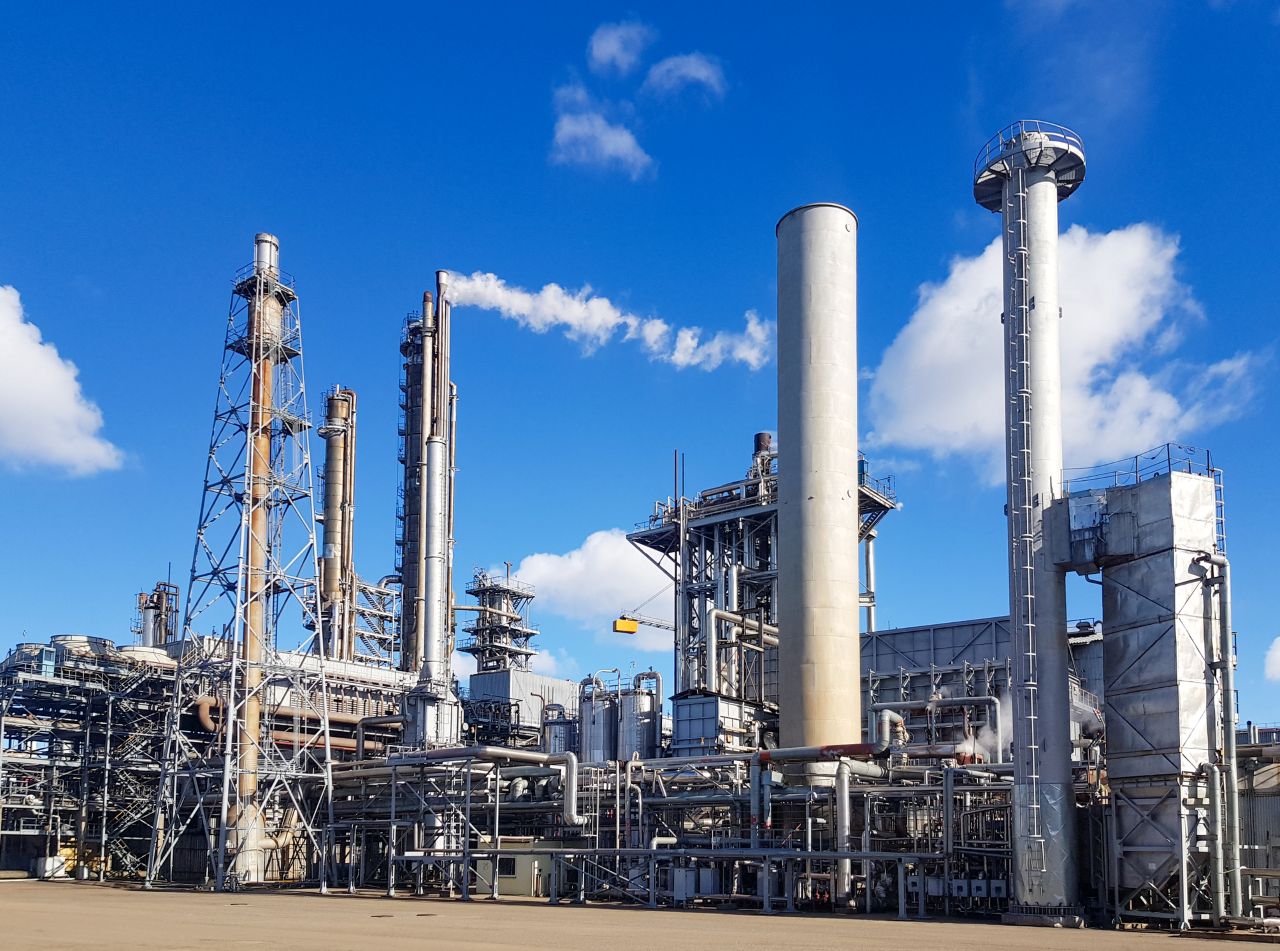No plastics panacea: chemical recycling causes pollution, promotes waste

By now it’s no secret that plastics pollution is a major environmental problem. Tiny plastic particles have been found in human blood, and the buildup of plastic waste in our oceans has reached critical levels. For decades the plastics industry has told us that if we just do our part and recycle, the problem will go away. But no matter how much we recycle, things only seem to get worse.
Global plastic waste more than doubled from 2000 to 2019 and global plastics production is expected to increase by 40 percent over the next decade, as the fossil fuel industry rushes to build new petrochemical plants that turn fracked gas into plastic. While the public grows increasingly concerned about plastics pollution, the fossil fuel industry and its allies are marketing a false solution: chemical recycling.
Despite serious health and safety concerns, state agencies responsible for conducting environmental reviews have approved 14 chemical recycling projects across the U.S. since 2016, and at least 10 more have been proposed and could begin operations over the next four years.
Chemical recycling uses heat or solvents to break down the molecular bonds in plastics to make fuels, other chemicals, or new plastics. Some technologies associated with chemical recycling, like pyrolysis and gasification, use high temperatures to thermally degrade plastics. Other technologies, such as depolymerization, use harsh chemicals to dissolve plastics. Not only are these processes energy-intensive, but they generate large quantities of harmful waste and release hazardous air pollutants – like benzene – that have been proven to cause cancer and other life-threatening illnesses.
The plastics industry has been adamant in its messaging that chemical recycling is not incineration, despite clear evidence that the underlying technologies and processes are virtually the same. A February 2022 study by the Natural Resources Defense Council that examined eight chemical recycling plants operating across the U.S. found that the majority of facilities are actually burning, not recycling, plastics.
These chemical recycling plants could release 96 different types of hazardous and toxic air pollutants during normal operations, according to an Oil and Gas Watch review of state permit documents. In many cases, state regulatory agencies fail to provide complete emissions data and redact information from companies’ permits under the guise of “confidential business information.”
Community members living near these proposed plastics recycling plants have expressed concerns about the air pollution they would produce. Earlier this year, people living near the proposed Fulcrum Centerpoint BioFuels Plant in Lake County, Indiana, just south of Chicago, began speaking out about the release of dioxin and other cancer-causing chemicals from the gasification process into predominantly Black and Latino communities with relatively high poverty rates. Despite strong community opposition, the Indiana Department of Environmental Management approved construction of the plant in August.
U.S. leads the world in plastic waste
Although the U.S. generates more plastic waste than any other country in the world, plastic recycling rates in the U.S. have fallen to an all-time low. A recent study found that the U.S. only recycles about 5-6 percent of its plastic waste, down from a high of 9 percent, after China passed import restrictions in an effort to protect its environment. This small percentage is recycled mechanically, using heavy equipment to sort, clean, and process plastic waste into new products. The remaining 95 percent of plastic waste is buried in landfills, incinerated, or ends up as litter.
That’s because single-use plastics, which make up roughly 40 percent of all plastic waste, are notoriously difficult to recycle. This category primarily includes plastic resins used to manufacture containers and packaging, such as
- polyethylene (used to manufacture milk jugs, plastic bags, and food packaging films),
- polyethylene terephthalate (or PET, used to manufacture water and soft drink bottles),
- polypropylene (used to manufacture snack and candy wrapping and microwavable containers),
- polystyrene (used to manufacture plastic cups and Styrofoam)
- polyvinyl chloride (or PVC, used to manufacture bottles for shampoo and cleaning products).
Recycling facilities don’t accept most of these hard-to-recycle plastics because they are difficult to sort and release hazardous chemicals during the recycling process. But that hasn’t stopped the plastics industry from embarking on a decades-long misinformation campaign to perpetuate the plastic recycling myth.
“Big plastic has been lying about traditional recycling of plastics for decades, but plastics recycling has been an abysmal failure, [especially when compared] to other materials, like metal, glass, and paper,” says Judith Enck, president of the Beyond Plastics project, who co-authored the study. “Fundamentally, most plastics will never get recycled because there are thousands of different plastics, thousands of different toxic chemicals, and thousands of different colors” that cannot be recycled together, making it impossible to sort and clean for processing.
States pass laws promoting controversial practice
Chemical recycling processes have been heavily promoted by the plastics industry and its allies, like the American Chemistry Council (ACC), a major trade group and the industry’s main lobbying arm. Using buzz words like “advanced recycling,” “circular manufacturing,” and “plastics renewal,” the ACC has embarked on a concerted lobbying campaign to promote legislation that expands chemical recycling efforts.
Politicians are taking the bait. Since 2017, 20 states have passed bills that incorrectly classify chemical recycling as actual recycling or that redefine waste or incineration processes to exclude chemical recycling. This allows chemical recycling projects to bypass more stringent air and water quality requirements. An additional three states—Michigan, New Jersey, and New York—are currently considering similar bills.
Chemical recycling is premised on virgin plastics production and is not a solution to our mounting plastics problem. Policies that promote chemical recycling allow the plastics industry to continue business as usual, while creating the illusion of environmental progress.
The European Union has already taken steps to codify chemical recycling processes like pyrolysis and gasification as waste incineration. Although the U.S. Environmental Protection Agency classifies these processes as waste combustion under the Clean Air Act, the Agency is currently updating its regulations and mentions chemical recycling in its National Recycling Strategy.
It’s important that state and federal laws place public and environmental health before company profits. That means creating and enforcing policies that reduce plastics production and hold polluters accountable for environmental damages. One example is the Break Free From Plastic Pollution Act, which was introduced in Congress last year by Sen. Jeff Merkley of Oregon and Rep. Alan Lowenthal of California. The bill would slow the expansion of plastic manufacturing facilities and require the plastics industry to pay for and manage the waste it produces.














